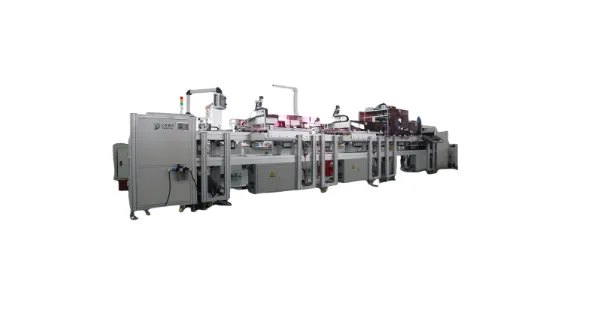Why are HEPA filter manufacturing machines ideal for mass production?

The global demand for HEPA filters has surged. HEPA filters are essential for capturing airborne pollutants and improving indoor air quality, from air purifiers and HVAC systems to industrial and medical applications. However, manufacturers must efficiently scale up production as demand grows while maintaining high-quality standards. This is where HEPA filter manufacturing machines play a key role. These machines offer high-speed automation, precision engineering, and material optimization, making them an ideal solution for large-scale production.
Also Read: Cost-Benefit Analysis of Decking vs. Siding for Columbus Home Improvements
HEPA Filter Manufacturing Machines: High-Speed Production Capabilities
One of the main reasons why HEPA filter manufacturing machines are suitable for large-scale production is their high-speed processing capabilities. Traditional manual or semi-automated methods are slow, labor-intensive, prone to inconsistencies, and challenging to meet high market demands. Modern HEPA filter manufacturing machines integrate advanced automation systems, enabling continuous operation and high output rates. These machines can process thousands of filter components per hour without human intervention. They are equipped with servo motors and precision rollers to ensure smooth and efficient material handling, reducing downtime and maximizing production output.
HEPA Filter Manufacturing Machines: Precision and Consistency in Filter Production
Maintaining consistent quality standards in HEPA filter manufacturing is critical because even minor defects can affect filter performance. Manual production methods often result in irregular pleats, uneven bonding, or inconsistent filter media application, leading to higher scrap rates.
HEPA filter manufacturing machines use computer control systems and high-precision cutting and pleating mechanisms to ensure uniform filters. These machines use automated pleating, ultrasonic welding, and laser cutting technologies to ensure each filter meets industry standards. By eliminating human error and maintaining rigorous quality control parameters, these machines improve batch-to-batch consistency, ensuring all filters perform optimally in real-world applications.
Efficient Material Utilization and Reduced Waste
One of the biggest challenges in large-scale production is optimizing raw material usage while minimizing waste. Traditional methods often result in excessive material waste, increasing production costs and environmental impact. HEPA filter manufacturing machine use automatic feeding systems and cutting designs to ensure optimal material utilization. These machines can precisely measure and cut filter media, reducing unnecessary waste and maximizing production output. Additionally, real-time monitoring systems can detect misalignment or material defects, allowing immediate adjustments to prevent resource loss. Manufacturers can reduce costs and support sustainable production practices by improving material efficiency, making these machines a wise investment for large-scale operations.
Scalability for Large-Scale Production
As market demand fluctuates, manufacturers need scalable solutions to efficiently increase or decrease production capacity. HEPA filter manufacturing machines feature a modular design, allowing manufacturers to adjust production speeds or integrate additional features based on demand. With automated production lines, companies can quickly increase production during peak seasons and reduce output when demand slows. Many modern HEPA filter manufacturing machines also offer customizable settings, allowing manufacturers to produce different filter sizes, pleat depths, and bonding methods with minimal reconfiguration. This scalability makes HEPA filter manufacturing machines ideal for companies expanding their operations without significant infrastructure changes.
Reduce Labor Costs and Improve Workplace Safety
Labor-intensive manufacturing processes require skilled workers, which increases operating costs and the risk of human error. Manual production also presents ergonomic and safety challenges, especially when handling heavy materials or operating industrial equipment.
By using fully automated HEPA filter manufacturing machines, companies can significantly reduce their reliance on manual labor, lowering labor costs and minimizing workplace injuries. Designed with a user-friendly interface, these machines allow operators to monitor production via a digital control panel rather than manually handling materials. Additionally, robotic systems integrated into modern HEPA filter manufacturing machines ensure precise material handling, reducing worker stress and increasing workplace safety.
Achieving Mass Production
The growing demand for HEPA filters makes large-scale, efficient manufacturing essential for businesses that want to stay ahead of the industry. HEPA filter manufacturing machines offer the perfect solution for mass production by providing high-speed automation, precision engineering, material optimization, and advanced technology integration. By investing in these state-of-the-art machines, manufacturers can increase productivity, improve quality, and reduce costs, making their production lines more competitive and sustainable.






